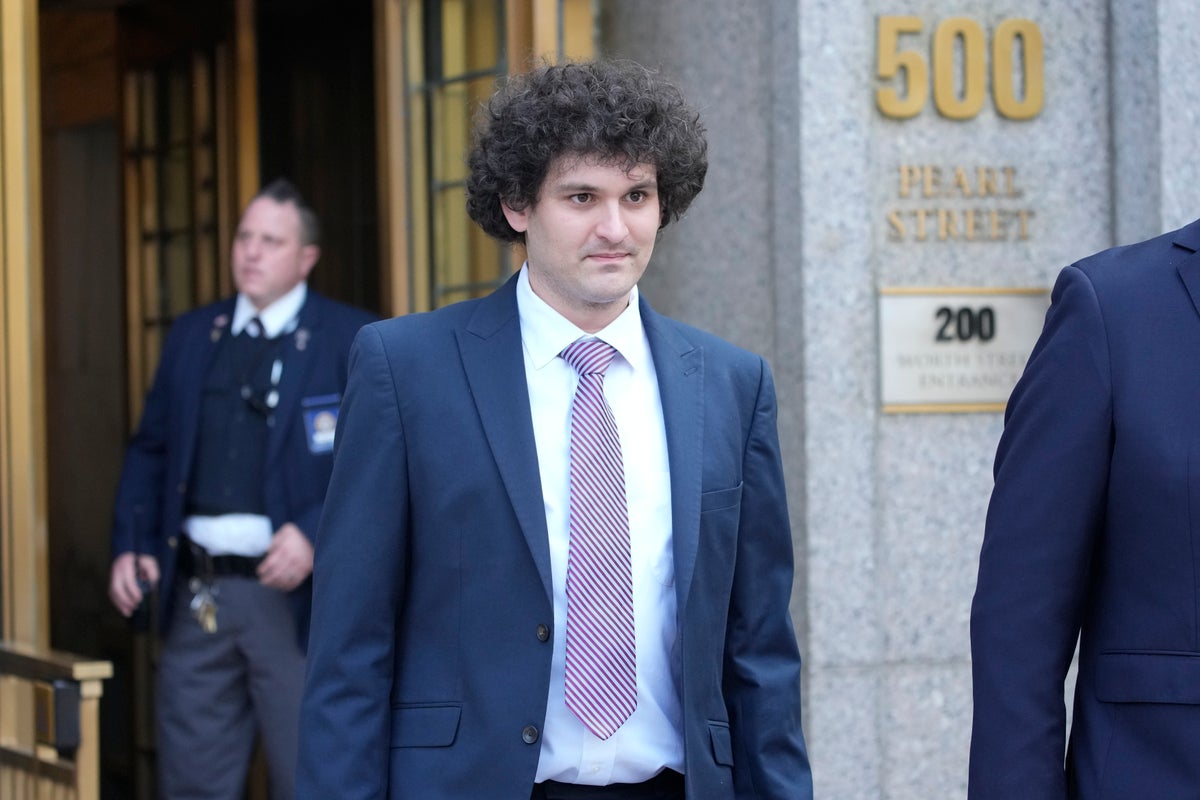
FTX founder Sam Bankman-Fried will no longer face a campaign finance charge at an October criminal trial, federal prosecutors say, citing a decision by Bahamian authorities to reject a count in the indictment that was not listed on the warrant against him when he was extradited to the United States in December.
Prosecutors told U.S. District Judge Lewis A. Kaplan in a letter that the government in the Bahamas notified it on Wednesday that authorities there did not consider the charge to be included in Bankman-Fried's extradition. Thus, prosecutors wrote, they would not pursuit it at the trial, in keeping with U.S. treaty obligations to the Bahamas.
Bankman-Fried, 31, has been confined to his parent's Palo Alto, California, home as part of a $250 million bail package that prosecutors on Wednesday asked a judge to revoke. Prosecutors say his extensive contact with the news media demonstrates an effort to affect the jury pool. His lawyers deny it. The judge has imposed a gag rule while he decides the issue.
The man once viewed as a crypto guru has pleaded not guilty to charges that he cheated investors and looted FTX customer deposits to fund lavish lifestyles for some of those who aided his dramatic rise in the cryptocurrency world. FTX entered bankruptcy in November when the global exchange ran out of money after the equivalent of a bank run.
In early May, Bankman-Fried’s lawyers sought dismissal of a charge of conspiracy to defraud the United States and violate campaign finance laws, the eighth count in the original indictment against him, saying it was not included in a “Warrant of Surrender” that described the other seven charges he would face in the U.S.
They said permitting the charge to proceed against him would set a “concerning precedent that would enable prosecutors to engage in a bait-and-switch” in which they obtain the extradition of a defendant by including charges they know the extraditing state would approve, only to add charges at a late date that were likely to be disapproved.
The charge, which carries a potential for up to five years in prison after a conviction, pertained to the government's claim that Bankman-Fried enabled over $100 million siphoned from Alameda Research to fund over 300 political contributions that were unlawful because they were made in the name of straw donors or came from corporate funds.
In an indictment, prosecutors said Bankman-Fried made the contributions to improve his personal standing in Washington, D.C., to increase FTX's profile and to “curry favor with candidates” who might help pass legislation favorable to FTX, including legislation concerning regulatory oversight over FTX and its industry.
The indictment said Bankman-Fried became one of the largest publicly reported political donors to the 2022 midterm elections as he caused substantial contributions to be made in support of candidates to Democrats and Republicans, and across the political spectrum.
“Bankman-Fried, however, did not want to be known as a left-leaning partisan, or to have his name publicly attached to Republican candidates,” prosecutors wrote.
Michael Zweiback, a Los Angeles criminal defense attorney and a former federal prosecutor who once headed the Cyber & Intellectual Property Crimes Section in California's Central District, said the prosecution's withdrawal of the campaign finance charge will not stop them from introducing facts pertaining to it at trial.
“That evidence is not excluded just because the charges have been dismissed,” he said. “The evidence of the systematic campaign donations are all part and parcel of describing the nature of the fraudulent scheme and therefore would be admissible.”
Zweiback said the dropping of the charge from the October trial and a related charge in a superseding indictment that could go to trial next year “will not impact the case” — or the more serious charges that led U.S. Attorney Damian Williams in New York to call it one of the largest financial crimes in history.
He said campaign finance evidence will likely be used to show the jury how Bankman-Fried planned to “continue his grip on the industry.” Zweiback added that they'll want to show jurors that his plans included soliciting “favor and influence with politicians.”







